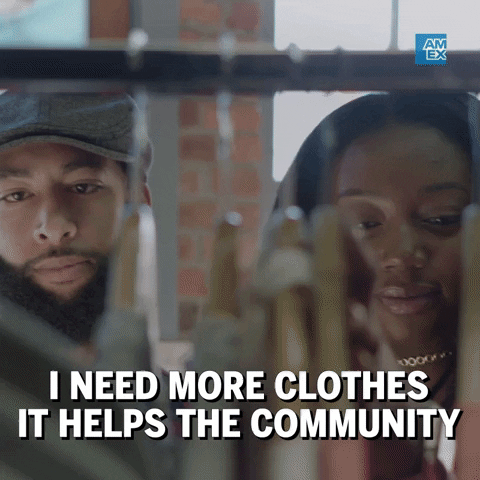Credit Basics: Understanding How Credit is Calculated
- John Savage, Author, CFHC
- Jan 11, 2020
- 5 min read
Updated: Dec 1, 2024

by John Savage, Author, NACCC Certified Financial Health Counselor™️
Often times when people think about credit, they think about financing for a new home, a line of credit for their business or going and getting credit cards so they purchase some nice things that they would not otherwise be able to purchase. Credit is so much more than this. Entering the world of credit is like the tongue it can spew out both good and also bring great encouragement to those around us.
Credit is a very complex and fascinating world of mystery that can bring great rewards and fortune when used responsibly and the opposite is also true, it can bring great devastation and misfortune and it's all in the hands of the beholder and those that hold the key to it. Credit does not make your life better, it only augments the life of the user of that credit. So, if you are irresponsibly, unbridled, love to shop and spend lavishly to impress others, make yourself feel good, or go on a shopping spree when you are emotional, your credit will mimic your life. Now this is not try for everyone. There are times in life whether rich or poor, an employee or a business owner, that we all will at some point in life face some kind of financial challenges that can adversely affect our credit.
Simply put, credit can be your friend or it can become a nagging burden bearer. The later is what I want to help you avoid. So, let's talk about how credit is calculated. Your credit which is reported on and updated with all three credit bureaus every single month, is calculated based on 5 key factors. Based on credit model being used for say a Home Loan, Vehicle Purchase, Business Loan or other, the percentages and the way given to each of them can changed slightly. Since the 1980's, credit scoring models have been use to create a calculated network of assessing and managing risk profile for the average consumer. FICO is the flagship model upon which all other models and been created.

A. Payment History – Your payment history is your single biggest weighted average at 35 percent of your credit score. When you pay your bills on time and better yet, early, this is reflected in your credit risk profile when is what credit is, your ability to pay back what you or as agreed. This is where most people are affected in their credit scores when can range from 300 – 850 depending on the credit scoring model. Paying on time obviously helps you with establishing and maintaining a good great store. One of the most widely used credit scoring models is the FICO 9 Score. This model is used by up to 90 percent of lenders nationally.
B. Utilization Score – This is the next biggest measurement in your ability to handle credit responsibly. This area measures 30 percent of your credit score and is based on how much credit you are utilizing or carrying a balance on a monthly basis. For example, if you only have a credit limit issued to you for $1000 and maintain and you spend and maintain a balance of $300 every month, then the amount of credit you carry each month is 30 percent. I recommend keeping your balance much lower at 10 percent or even better pay your balance off every month. This helps boost your credit score even higher over time. Plus, another reason for this is if you have a financial emergency or have some other emergency situation that may require the use of extra funds that month, you won't have to worry about carrying a high balance, high interest fees, or getting behind and not being able to catch on your monthly bill which is often the case for members I assist on an daily basis.
C. Length of Credit – 15 percent of your credit score is measured based on the average length of credit that you carry. The longer the credit history you carry, the better. Once you have maintained good to excellent credit history for 12 – 24 months, this opens up a world of opportunity for expanding your credit profile. If you are planning on purchase a new home, buying a new car, traveling around the world, start a business or some other major purchase, your credit history will be important factor as well as it will show your credit profile as a more season and established credit risk. This is why for another reason it is important to not apply for too many credit cards at one time, especially if you are new to credit since the newer your most recent line of credit is, the shorter your average credit history will be.
D. New Credit - 10 percent of your credit history will be based on the amount of new credit you have been issued such as a larger line of credit issued, which can work to your advantage in building your credit score and lower your utilization ratio, which we will discuss another time. Obtaining a recent home loan, purchasing a new car, are all types of can all be sources of new credit. Even getting a HELOC to pay off some nagging bills from the past or purchasing new appliances from Lowes can all be new lines of credit that will report on your credit report within 30 days or less. The credit bureaus what you to periodically borrow and acquire new lines of credit so that can monitor how you manage risk over time and also your calculate you purchasing habits.
E. Mix of Credit – Lat but not but not least is your the mix or types of credit you carry. Just like stated above, the type of credit can also be new credit that you were issued. The credit issuers and credit bureaus what to see how you manage risk and handle your finances. They are all in the business to make money. That's exactly why they want to monitor your spending habits on a daily, weekly, monthly, and even annual basis to see what you are spending your money on, how long it takes you to pay back and pay off balances to determine whether you are ultimately a good risk to invest in or not. They want to lend you money because without someone to lend money to, the banks would be out of business and cold not other wise continue to grow the way they do. To learn more and ready to turn the pages, then complete the intake form and sign up for a coaching package, today!



Comments